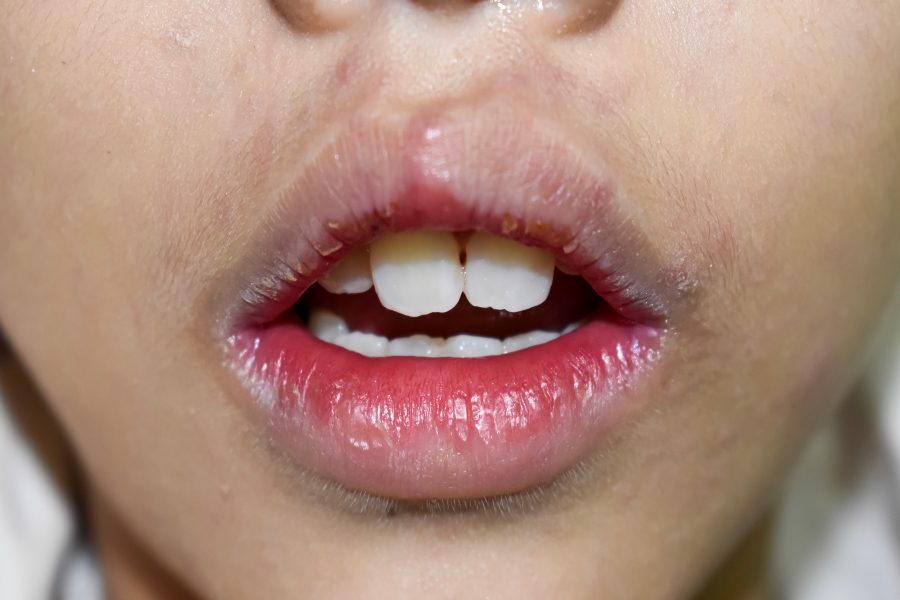Extremely Chapped Lips? Your Child may Have lip Licker’s Dermatitis

Adults are familiar with chapped lips during cold, dry, wintery weather, but they rarely rise above the level of annoyance. For some children, however, chapped lips can be a more serious problem. Children experience chapped lips for many of the same reasons as adults, but some children experience chapping of not just the lips but the skin surrounding both the upper and lower lips, as well. This more severe condition is known as lip licker’s dermatitis and can last for months.
Children with lip licker’s dermatitis often have red, scaly, dry patches over the lips, the borders of the lips, and on the skin above and below. The condition typically waxes and wanes and can become so bad that the skin can crack, bleed, and become quite uncomfortable. These children often, but not always, have eczema on other parts of their bodies. The dermatitis is caused by the saliva irritating the skin and often starts with the child innocently licking their lips to keep them moist. Once the dermatitis starts, the child will continue to lick to relieve the itching and discomfort, making the problem even worse.
The key to conquering lip licker’s dermatitis is to liberally coat the mouth and skin with a gentle emollient. Vaseline® or Aquaphor® are good because they are gentle, thick, and won’t sting or taste bad. Avoiding stick formulations commonly found in the drug store is a good idea because most contain an alcohol-based ingredient that can burn or perpetuate the dryness. Apply the emollient as often as possible throughout the day, and coat especially well overnight so the skin has a chance to heal. Asking the child not to lick his or her lips just calls attention to the mouth and nearly always results in increased, not decreased, lip licking.
Occasionally, the child will require something stronger, such as a very mild topical steroid, antibiotic cream, or antifungal cream. If liberal use of emollients day and night does not help, or the rash suddenly begins to spread quickly, see your child’s pediatrician.
In addition, lip licking can sometimes be a sign of nervousness or anxiety. Uncovering the child’s source of stress can help decrease the severity and frequency of this behavior. Young children can be very hard to treat because they may be resistant to having products put on their mouths. Generally, as children age into the school years, this problem can be much easier to control.
Sources:
- Pediatric Dermatology Expert Consult – Online (Cohen) 4th Ed
- Pp.88f, 252, 252f
Powered by Bundoo®










